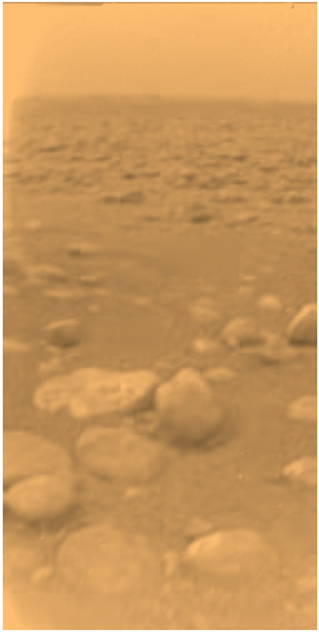
Meteorological anomalies parallel the predictions that were made for one possible solution for Titanian biochemistry.
The discovery of life on Titan would be much more exciting than the discovery of life on Mars. The idea has been floated that life on Mars and life on Earth could actually have a common ancestor, seeded on meteor fragments blasted into orbit off each other's crusts during the Eoarchaean when bombardment was much more frequent. If there's life on Mars and that's what it turns out to be, wouldn't that be boring? Sure, we'd get a couple new enzymes out of the deal, a few new twists in biochemistry, but nothing cutting deeply at the problem of life elsewhere in the universe, not much more than would finding a weird cyanophyte in Antarctica's Dry Valleys. Any replicator we find on Titan is much less likely to share a common ancestor with cells on Earth, not just because of the distance involved, but because the chemistry would have to be fundamentally different. If you want to reason inductively you want to generalize based on data from sources as diverse as possible. Life on Titan would teach us much more about chemistry, about early evolution, and about the probability of finding life elsewhere in the universe besides in our backyards.
Also, it's far less likely that life on Titan and life on Earth would taste good to each other...
ReplyDeleteThat's true. So now we can get into other arenas: do we need to worry about being infected by (or infecting, or eating) something that has never encountered aqueous chemistry or the types of polymers we're made out of? Can we find general principles predicting interactions between such systems?
ReplyDeleteI think we all stay in our encounter suits until we expose a lot of our lab animals to their lab animals in controlled environments.
ReplyDeleteWe don't even know how all of our own chemistry works with all of our own chemistry yet.
Dear sentient aliens, while we have peaceful intentions, our microbes likely do not.